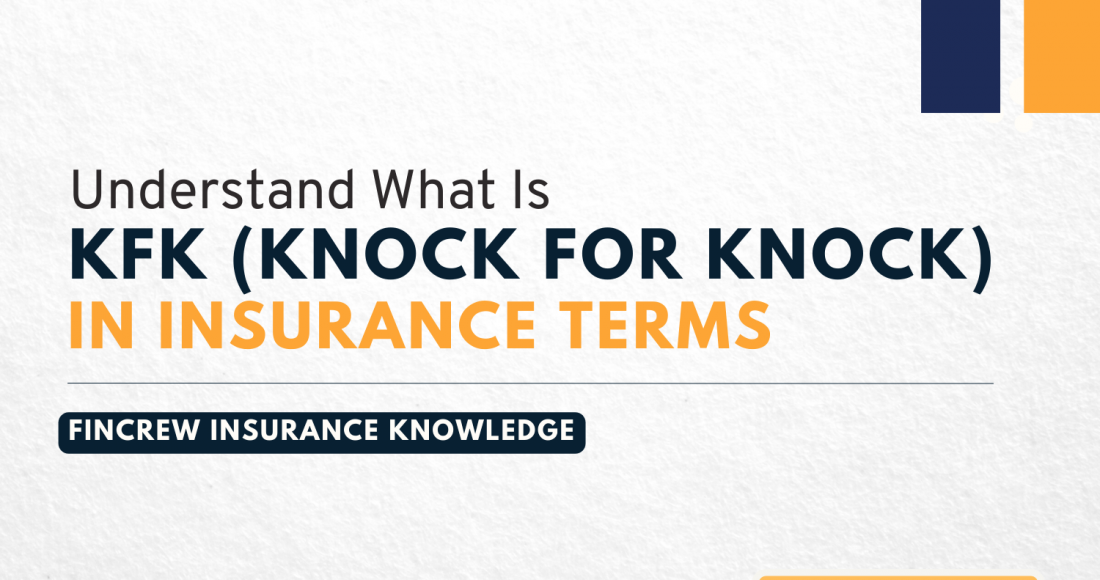Have you ever heard about the Knock for Knock agreement in auto insurance? Or has anyone asked you about Own Damage claim or Own Damage Knock for Knock? If not, read along to learn more about it.
What Is Knock for Knock Agreement?
A knock for knock agreement is a contract signed among all insurance companies in Malaysia to control insurers from exercising their respective quid pro quo rights against each other. Irrespective of whose insured party is at fault. The purpose of the agreement is that each Insurer should bear responsibility for any damage done to their client’s vehicle, without claiming against the other Insurer, even if the other Insurer is at fault. For instance, if my car was hit by another driver’s car, let’s say the other driver’s name is Sam. In this scenario, let’s say, Sam is at fault. The standard procedure is for my Insurer to file a third-party claim against Sam’s Insurer for property damage. However, this process is always tedious and time-consuming because you will have to file a litigation suit against the other Insurer in court. Invariably there will be lots of small traffic accident claims litigation in courts between insurers, the reason for knock for knock agreement.
Why Is It Essential?
As we all know, the person who caused damage to a car is liable to pay, and a third-party policy will take care of that reimbursement. But in the real world, it doesn’t quite work that way. The process of filing a third-party insurance claim is long and tiresome with police and courts involved. You will need to take the at-fault driver to court, and this could be a lengthy and expensive process. KfK is not mandated by law, and Insurers know this, but rather prefer it to avoid the unnecessary delay that is encountered by dragging third-party claims to court. It also saves both parties the frustration that is met while filing for litigation in court and obtaining a charge sheet from the police. Most importantly, KfK is meant to rapidly cover costs for the damage sustained without causing inconvenience to the client.
What Are My Option(s)?
So the best option you have, if you didn’t want to invoke the third-party claim, is to file an Own Damage (OD) claim. This is a claim invoked by the driver involved in an accident, who is not at fault, against his own insurance company. In this scenario, the driver will not lose his No Claim Discount provided the driver has a comprehensive policy. The Own Damage claim, also referred to as Own Damage Knock for Knock (ODKFK), is a benefit for private cars with Comprehensive policy.
This benefit is only applicable if you are in an accident with another private vehicle with a Comprehensive policy; if not, you will lose your No Claim Discount. However, it is essential to take note that ODKFK does not apply in all situations. For instance, an ODKFK will not apply when there is third party bodily injury involved, irrespective of who is at fault or when the Insurer of the third party vehicle does not do business in Malaysia, i.e., the insurance company is not located in Malaysia, which means KfK agreement is not binding on the Insurer. The ODKFK will also not apply when the third party vehicle is a bus, taxi, limousine, or hire and drive a car. So, if you found yourself in the scenarios above, you will probably have to follow the usual route of claiming Third Party Property Damage against the other driver’s Insurer or make a claim under Own Damage and lose your NCD if you have a comprehensive policy.






